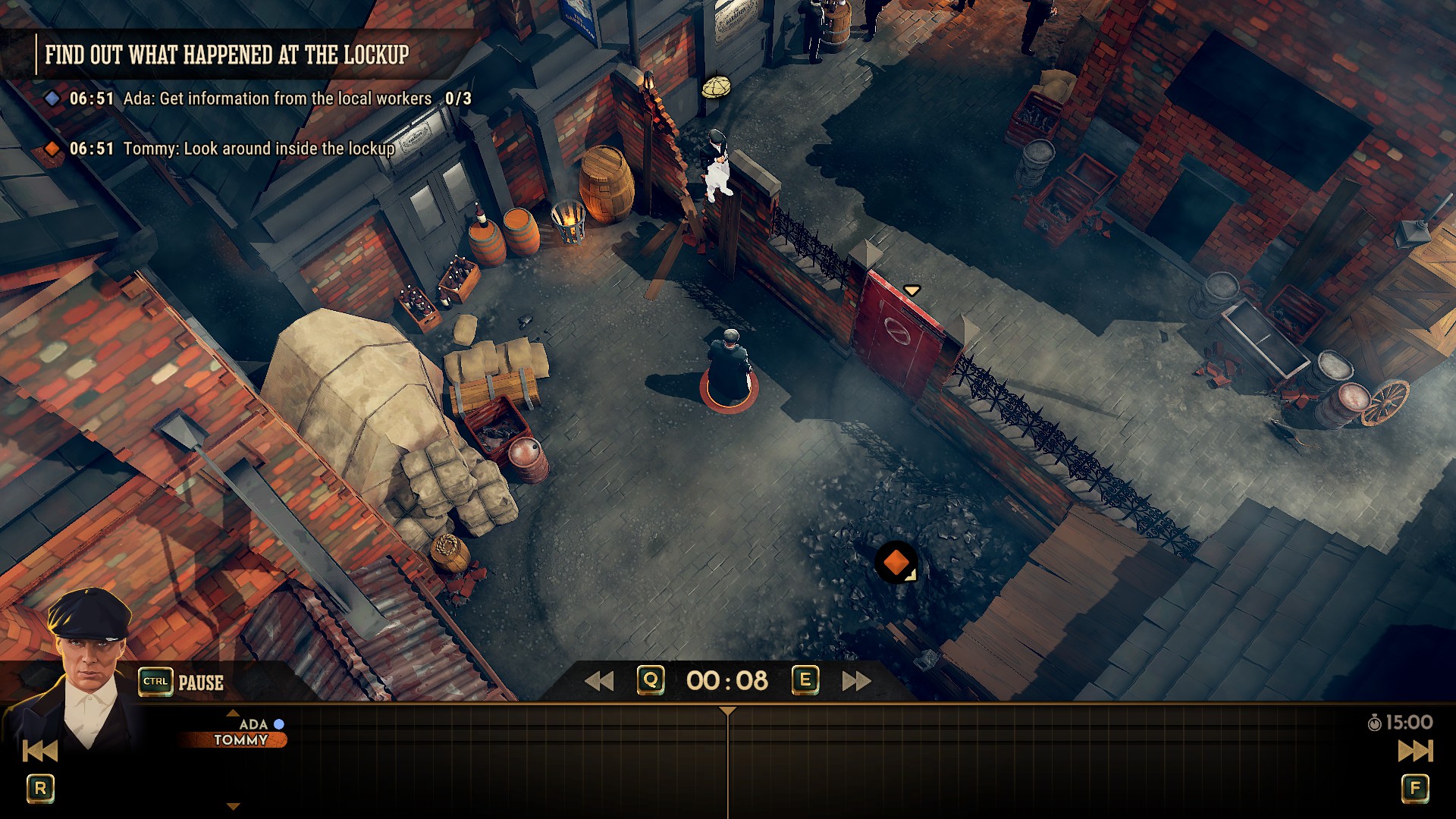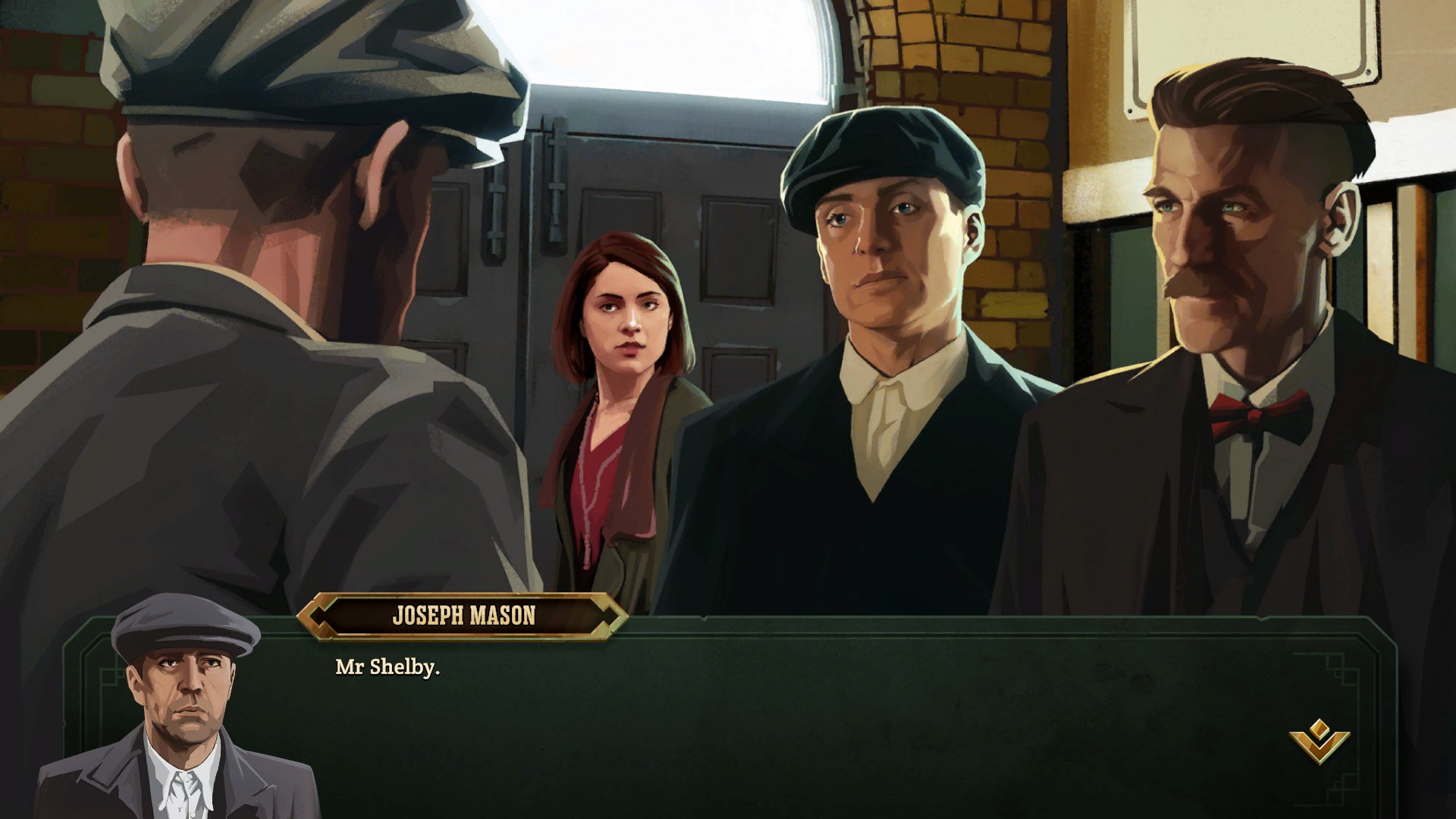As a television period drama, Peaky Blinders achieves a great many things. It’s a spectacularly violent gangster epic that, at present, spans five series as much as it is a rumination of life as the Birmingham working-class in the aftermath of World War I, as well as the terrible invisible war that rages between the ears of the shell shocked. Though there’s a small hint at these themes in Mastermind, a prequel video game tie-in for the series, it exists more as a testament to Thomas Shelby’s rapier-like acumen as the pseudo-head of his own criminal household. Like John Wick: Hex played more to the titular character’s cool calm so too does Mastermind as careful planning takes the spotlight from what is regularly a Shelby slaughter.
As a prequel to Steven Knight’s tremendously popular series, Mastermind tells a brief but succinct standalone story that centers on the Shelby family unearthing a plot to bring their empire to its knees. It’s a little predictable and the stakes aren’t exactly palpable thanks to the prequel paradox but it’s a tight narrative that explores even more of Tommy’s neuroses after his service in France as well as expanding the family unit with never before seen characters. As a nod to Tommy’s complex, lateral thinking, the game works for the most part, although there are plenty of scenarios throughout the game’s five-hour, ten-mission campaign where he’s missing, forcing Arthur, Ada and John to press on without him, and none of this model planning goes out the window. The game’s built around an idea that becomes narratively inconsequential, though it certainly doesn’t impair the fun of it all.

“The soldier’s minute: in a battle, that’s all you get. One minute of everything at once.”
Mastermind is built around Tommy Shelby’s concept of ‘a soldier’s minute’ and with his pocket watch acting as such a visual motif within the game, it’s no surprise that managing the synchronicities of several timelines actually works pretty well here, making for an apt, if at times challenging, puzzle game. The timeline of the stage exists on an adjustable track that can be rewound and replayed throughout as much trial and error as it takes for you to navigate the level. Each member of the Shelby clan has a unique ability, and whether it’s Arthur’s brutish ability to kick doors down or it’s Polly’s bribery and lock-picking, the game’s many challenges are posited so that you’ll need to have them all work in concert to succeed. It’s tactical and requires a bit of quick-thinking, and though it’s just trial and error with no true fail-state because, of course, you can just thumb back through the timeline to fix where it all went haywire, it’s still satisfying to sidestep the peril with a bit of considered troubleshooting.
There are some frustrations that come hand in hand with how the Mastermind experience is constructed. In stumbling across the correct path through the level’s problem, I often found myself on the precipice, seconds from checking the box for the win condition only to exhaust the timeline and fulfill the level’s fail state instead. To make up the extra seconds, I’d have to rewind through several minutes and do things minutely quicker which was a source of some frustration given I’d clearly solved it and merely needed to do busywork to free up a spare second. What’s more frustrating is that a particular level broke itself more than once for me as John, the family arson and head-knocker, didn’t spawn outside of the Garrison, leaving me marooned in the street with no way forward. It corrected itself in time after a few reboots, although I worry some might waste more time than necessary searching for a nonexistent solution to what is essentially a bug.

The game’s isometric camera angle gives the player an omnipotent viewpoint that lets them cast a wider gaze and understand the mechanical requirements of the game’s level, as knowing who to send where is the essence of problem-solving in Mastermind. This all-seeing, eye in the sky look does obfuscate the lead’s character models to an extent, which all look to be accurate depictions despite the game’s ever so slight caricatured aesthetic. All of the show’s actors have lent their likeness to the tie-in, though it’s certainly a shame that none could lend their services in a voiceover capacity to further legitimise Mastermind as an official part of the Peaky Blinders canon. This lack of performance placed a bit of pressure on the game’s soundtrack, written and performed by Feverist, who cut their teeth scoring the show’s first series, which of course acts as a terrific foil to the game’s fast-paced lawlessness.
From one small screen to another, Peaky Blinders’ jump into the videogame world is an unexpectedly unique and enjoyable stomp through the blue-collar streets of Birmingham. Like the family central to the series, the game isn’t without its problem areas, Mastermind does a fine job of adapting Tommy Shelby’s distinctive trait as a great thinker, even if it loses sight of that idea only a handful of missions in.




